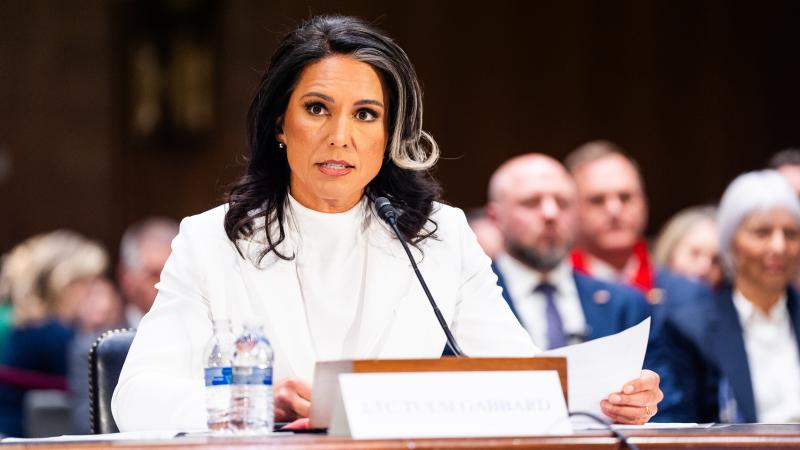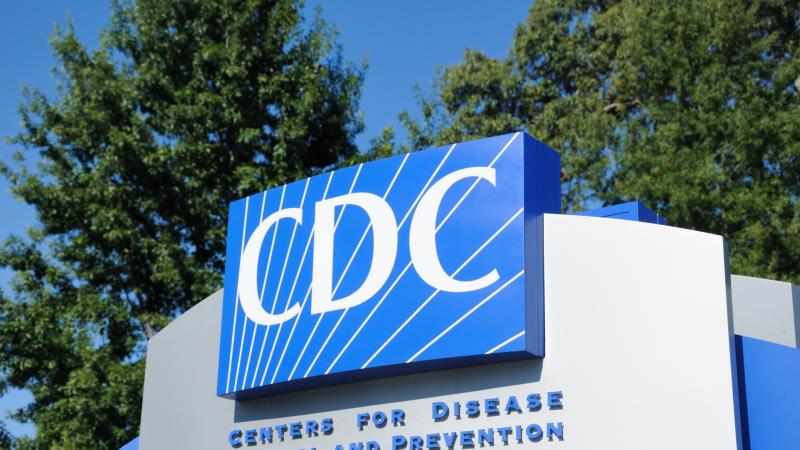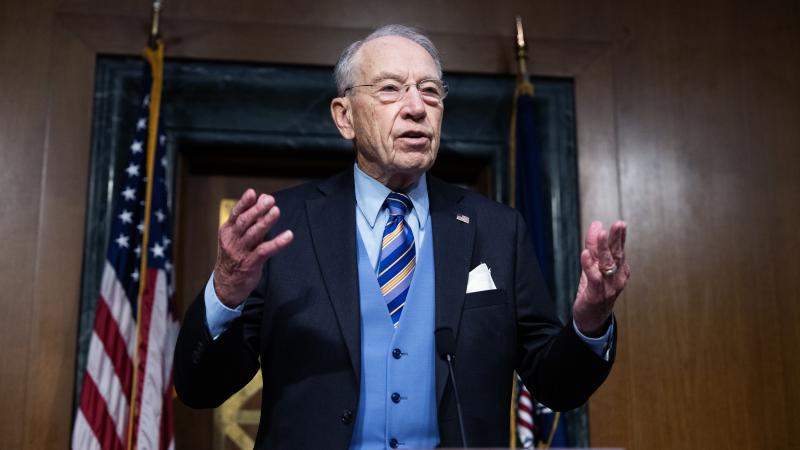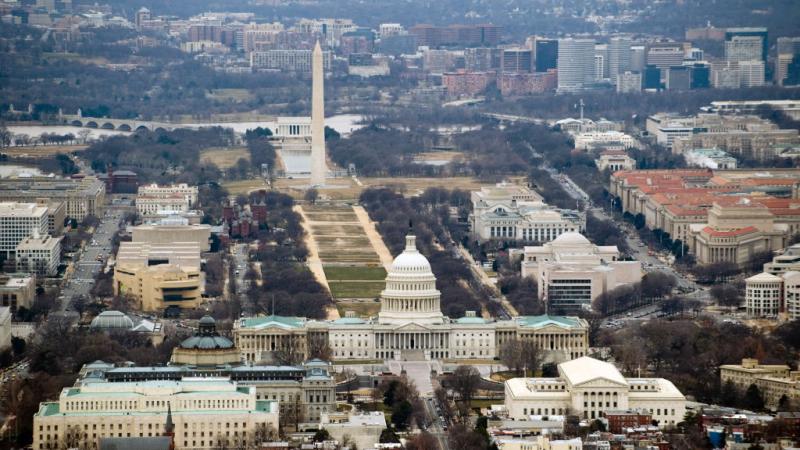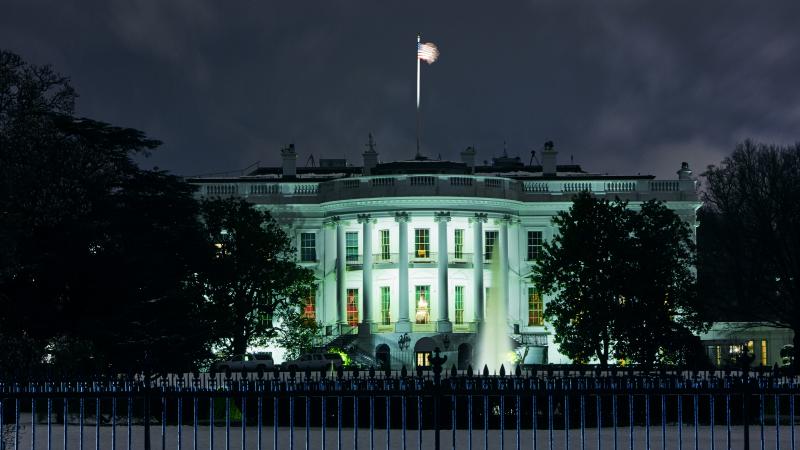Science journals that peddled COVID catechism accused of lab-leak quid pro quo, misrepresentation
Ed Martin implies journal that published "Proximal Origin," covertly shaped by Fauci and Collins, may have committed fraud by hiding authors and paying to play. Science magazine hides full Bhattacharya interview, implies he lied.
During the recent pandemic, leading science and medical journals appeared to preach the Covidian catechism of naturally emerging SARS-CoV-2, vaccines with no meaningful downside, mask effectiveness and President Trump's nonexistent bleach recommendation, while ignoring, slow-walking and actively suppressing contrary evidence and putting a scarlet letter on infidels.
Now that some of their leading critics have replaced their patrons at the federal public health agencies, journals appear to have an even stronger incentive to pre-bunk and discredit the officials who have the power to cut funding and convene grand juries.
Science implied National Institutes of Health Director Jay Bhattacharya lied in a 20-minute interview with reporter Jocelyn Kaiser, releasing six short excerpts rather than the full transcript so readers couldn't see Bhattacharya's answers in context, according to a former Senate corruption investigator who posted the full interview recording and transcript.
Investigative journalist Paul Thacker characterized Kaiser's interview style with Bhattacharya as "confusing, contentious" and "[s]kipping about in a rambling, meandering path," with the director asking Kaiser "to clarify and explain exactly what she was asking."
The journal also parroted Nature reporting, based on unnamed sources and contradicted by NIH hours later, that the agency might cancel all foreign funding awards. Nature quoted former NIH Director Francis Collins denouncing the purported policy as effectively killing "children and adults in low-income countries" because of halted research.
This was despite Bhattacharya telling Kaiser that NIH was only concerned about "tracking subawards" to foreign recipients, not direct foreign awards. He cited EcoHealth Alliance's pass-through of taxpayer funding to the Wuhan Institute of Virology, a prominent COVID-19 lab-leak candidate, as a strong influence on the to-be-announced policy.
That financial arrangement ended late in the Biden administration with the debarment of both EcoHealth and its president, Peter Daszak. Kaiser told Just the News to "judge for yourself how I characterized the interview."
A subsequent Science article surreptitiously recast what the first claimed about the quickly discredited Nature report, that NIH was planning all along to block only foreign sub-awards, yet its headline appeared to imply all foreign awards were blocked and quoted Boston University's Gerald Keusch as saying the policy "borders on the insane."
Though the subhead specified the target was sub-awards, the original headline was "this is insane," implying the policy was even worse than Keusch said. (Science fixed the "editing error" a day and a half later.)
Keusch acted as a go-between for EcoHealth's Daszak and David Morens, then-senior scientific adviser to then-National Institute of Allergy and Infectious Diseases Director Dr. Anthony Fauci, over Morens' concern that communications to his "government phone" were vulnerable to Freedom of Information Act requests. Morens has said he routinely evaded FOIA.
The coauthor of the second article, Science senior correspondent Jon Cohen, denied to Just the News that his Bluesky posts implied that Bhattacharya lied in his Kaiser interview.
Cohen's first post, flagged by Thacker, said Bhattacharya dismissed the Nature report as rumors before announcing the new policy. His second post seems to unambiguously accuse Bhattacharya of lying, claiming the policy change on subawards was the same one Bhattacharya dismissed as a "rumor" – a total foreign funding ban – to Kaiser.
"In the interview, Jocelyn attempts, repeatedly, to discuss the distinction [Bhattacharya] is making [between foreign direct awards and sub-awards], and he returns to discussing a point about all collaborations and rumors – a point she is not pursuing," Cohen wrote in a lengthy email that Just the News is reprinting in full.
"This is not addressing her question about a policy change – announced within hours – that has serious ramifications for many foreign collaborations, as my article with Meredith Wadman explains," he wrote. "To my mind, it introduces some ambiguity about the impact that cutting the sub-awards will have on foreign collaborations in the eyes of American researchers, as our story explains."
Cohen noted he has previously rebutted Thacker's characterizations of him. "Thacker has long made unfair, inaccurate criticisms of me and my work that attempt to defame me."
He defended Science's coverage of Bhattacharya and the foreign-funding dispute at length in a second email, also reprinted in full.
Quid pro quo for 'Proximal Origin'?
Part of the American Association for the Advancement of Science family of journals, which receive federal funding, Science has copped to major failures in just the past two years.
It acknowledged publishing more than 2,600 papers that may have "exaggerated claims" by sharply reducing the use of "hedging" language that conveys to readers the uncertainty around findings, as discovered by a different journal's investigation.
Editor-in-Chief Holden Thorp also belatedly apologized in front of Congress a year ago for being quick to dismiss the lab-leak theory, once mocking the evidence – which convinced the FBI, CIA and Department of Energy, in addition to German and British intelligence – as a "mediocre episode" of the Showtime thriller Homeland.
After Bhattacharya's planned nomination to the post, Scientific American appeared to try to whitewash his attempted takedown and marginalization by the Biden administration, with then-NIH Director Collins specifically identifying him as a threat to the feds' lockdown policies.
Then-interim U.S. Attorney Ed Martin sought information from SciAm sibling Nature Medicine, which published the lab-leak-denying "Proximal Origin" paper covertly shaped by Collins and Fauci, who may have violated an NIH ghostwriting ban affirmed years earlier by Collins.
Martin implied the Springer Nature journal engaged in a quid pro quo with the feds, alluding to Nature Medicine omitting the names of Collins and Fauci, who soon after gave "Proximal Origin" coauthor Kristian Andersen federal grants.
Andersen repeatedly questioned the natural origin of COVID internally, even once saying "accidental release [from a lab] is in fact highly likely,” as he co-wrote the paper under the "advice and leadership" of Collins and Fauci.
The journal also left off another research funder, Wellcome Trust Director Jeremy Farrar – now chief scientist at the World Health Organization – who convened the authors and made a key change to the paper. "Proximal Origin" coauthor Robert Garry said in a private email, then under oath that Farrar should be named as an author.
Cohen, the Science correspondent, rejected the opportunity to break the allegation that "Proximal Origin" was actually ghostwritten and instead forwarded the purported whistleblower's email to Andersen, who forwarded it to Fauci.
When asked why, Cohen said, in part, the email "offers no insights whatsoever" about COVID's origin and critics "exaggerated the significance" of it. He also posted the email itself.
Martin's letter was also obtained by Thacker, who reported Nature Medicine was the "actual target" of Martin's apparently identical letters to at least three publishers about their bias and transparency about misleading readers and susceptibility to influence.
"It has been brought to my attention that more and more journals/publications like Nature are conceding that they are partisans in various scientific debates," advocating for a "position … either due to advertisement (under postal code) or sponsorship (under relevant fraud regulations)," Martin told Nature Medicine Editor-in-Chief João Monteiro March 28.
He asked how the journal assesses its "responsibilities to protect the public from misinformation … clearly articulate[s] to the public when you have certain viewpoints that are influenced by your ongoing relations with supporters, funders, advertisers, and others," and handles allegations that its authors "may have misled their readers."
Martin also queried whether Nature Medicine accepts submissions "from competing viewpoints" and "if publishers, journals, and organizations with which you work are adjusting their method of acceptance of competing viewpoints," with "new norms" under development. Monteiro did not respond to Just the News queries.
The Facts Inside Our Reporter's Notebook
Links
- naturally emerging SARS-CoV-2
- vaccines with no meaningful downside
- mask effectiveness
- President Trump's nonexistent bleach recommendation
- slow-walking
- actively suppressing contrary evidence
- scarlet letter on infidels
- patrons at the federal public health agencies
- prebunk
- 20-minute interview with reporter Jocelyn Kaiser
- Paul Thacker characterized Kaiser's interview style
- Nature reporting
- contradicted by NIH hours later
- debarment of both EcoHealth and its president Peter Daszak
- subsequent Science article
- original headline was "this is insane,"
- Keusch acted as a go-between
- Morens has said he routinely evaded FOIA
- second
- first post
- more than 2,600 papers that may have "exaggerated claims"
- Holden Thorp also belatedly apologized
- German
- British intelligence
- Scientific American tried to whitewash his attempted takedown and marginalization
- Ed Martin sought information from
- "Proximal Origin" paper covertly shaped by
- affirmed years earlier by Collins
- lavished "Proximal Origin" coauthor Kristian Andersen with federal grants
- "accidental release [from a lab] is in fact highly likely,â
- "advice and leadership" of Collins and Fauci
- convened the authors and made a key change
- Farrar should be named as an author in a private email
- under oath
- When asked why, Cohen said
- He also posted the email itself
- reported Nature Medicine was the "actual target"
- letters to at least three publishers
